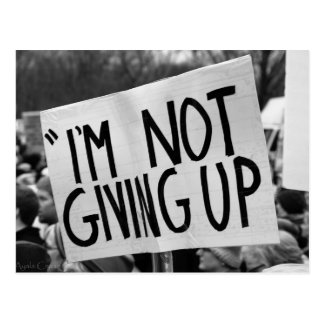Commitment
Keep Going No Matter What
The twelve pillars of recovery are a comprehensive framework that can enhance your internal stability and provide the foundation for a successful journey of recovery.
Even with progress, addiction can manifest as a chronic disorder with symptom recurrence or relapse. But don’t worry, you can actively combat these challenging days and overcome obstacles by staying committed, determined, and remembering why you started on this path to recovery.
Setbacks are an inevitable part of the process, but they also present opportunities for growth and learning. You’re not alone, and there are resources and support available to help you through tough times. With dedication, perseverance, and a positive attitude, you can overcome addiction and live a fulfilling life in recovery.

Jean-Paul Sartre
“Commitment is an act, not a word.”


Practice Makes Permanent
We believe that you can minimize the risk of relapse by stabilizing your internal environment through small lifestyle changes that are repeated regularly. It’s not enough to simply read or listen to advice; you need to take action repeatedly to rewire your neural circuitry and create new habits.
If you’ve already read through our 12 Daily Pillars of Recovery and committed to addressing each of them, you’re on the right track. However, it’s important to put that understanding into practice by repeating the necessary actions over and over again until they become permanent habits.
Years of unhealthy living and undisciplined habits have created grooves in your brain that control your behavior, but the good news is that your brain is plastic and capable of change. To stay strong, healthy, and thriving, you need to pay attention to all the essential areas of your life and monitor your progress in real time using our daily checklist format.
If you have a history of trauma that’s disrupting your recovery, we recommend addressing it immediately. By taking steps to correct dysfunction and stabilize your internal environment, you can reduce the risk of relapse and achieve lasting recovery.
A Mustard Seed of Faith
Having faith is crucial to making progress. It’s essential to have hope and believe that things will get better, even if it doesn’t seem that way right now. Without that “mustard seed of faith,” it’s unlikely that any progress will be made. To create lasting change, it’s necessary to be willing to make uncomfortable decisions, but that won’t happen unless you truly believe it will work. Having faith means continuing on even when the results aren’t yet visible.
Overcoming defiance
It’s been said that people with addiction tendencies tend to have a defiant temperament. We usually dislike being told what to do and have a disdain for rules. However, beginning to follow directions and breaking through this defiance is crucial to recovery.
In acute treatment, 24-hour monitoring and accountability help address this issue. This is why those with even a slight desire to end a dependency typically complete an inpatient treatment program. But success rates decrease significantly once released back into the “real world.” Without constant redirection and immediate accountability, we often regress into addictive symptomology. The problem is that we are often the last ones to notice this downward spiral since the “sickness” is familiar and comfortable to us.

Acceptance vs Passivity
Accountability and Responsibility
We can thrive in a stable life of abundance and fulfillment when equipped with the right tools and direction. However, we must take action ourselves. Though it may seem daunting at first, we can empower and inspire ourselves to not only heal but to become more than we ever imagined. Don’t miss out on this unbelievable experience!
Let’s transform ourselves from tragic statistics and victims of merciless and often fatal conditions to miraculous examples of actualized and beautiful human beings. By simply being present, our positive impact will ripple out and affect people and situations in unimaginable ways. Are you excited? You should be
We're As Sick As Our Secrets
Recognize that recovery is a journey, not a destination, and that change does not happen overnight. You may experience periods of lightning-quick progress and other times where it feels like no progress is being made. Keep in mind that you are typically the last person who can accurately gauge your progress. To objectively measure your progress, seek someone familiar with drug addiction recovery who is emotionally distant from you. Express your current state of recovery in the most positive, wise, and compassionate manner possible. If you are keeping secrets or not disclosing problematic behaviors, admit them to someone immediately because you’re as sick as your secrets.
In early recovery, people often confuse acceptance with passivity, which can lead to continued emotional sickness.
Acceptance opens the gateway to emotional wellness, while passivity spirals downward into discontented abstinence that often leads to active use. It’s essential to understand the distinction between the two as it can make all the difference in a successful life of recovery.
To change daily bad habits, it takes a little courage and repetition. Acknowledge your bad habits and change them. Establish a regular sleep cycle, take time to quiet your mind in the morning, consume mood-supporting foods, stimulate your mind with good books and motivating online content, elevate your heart rate with exercise, recognize and avoid maladaptive perfectionism, help others, and pursue something of value daily.
If you’re unsure about when to exercise the “courage to change,” consider seeking a mentor or guide to help you navigate the waters.

Theory of a Routine
The 12 Pillars of Recovery aim to maintain a healthy and structured routine, reducing the internal instability that leads to relapse.
Following the right routine during recovery strengthens our response to stress, enhances mental health, and reduces anxiety and depression. It enables us to cope with change and develop healthy habits, which translate into positive behaviors. Like we once adjusted to the irregular and unhealthy lifestyle of addiction, we can also adapt to this healthy routine, leading to a feeling of control and stability often lacking in long-term sobriety.
Establishing a routine and experiencing its benefits makes it challenging to disrupt. Any deviation from the regular routine, which provides internal balance, will be noticeable. When we notice such disruption, it is a clear and obvious warning sign that we are heading in the wrong direction. This can serve as a stimulus to seek help and stay on track.
Theory of a Relapse

Is Relapse an Inevitable Consequence?
We believe that people don’t consciously choose to relapse. Rather, it’s a result of a destabilized internal environment that they have been struggling with for too long. Unfortunately, there’s no objective way to measure the magnitude of this destabilization or how long an individual can endure it before abstinence becomes unbearable.
Proper Alignment is key
Aligning ourselves with educated, trained, and experienced people in the world of drug recovery is necessary. The benefits of doing so are too significant to ignore, and the consequences of wandering astray are too catastrophic.
The wolves of fate
When the wolves of fate come howling at the door, and you’re not sure how you are going to make it through this one, just keep going.
Tomorrow will be better.
We promise.
RECOVER
